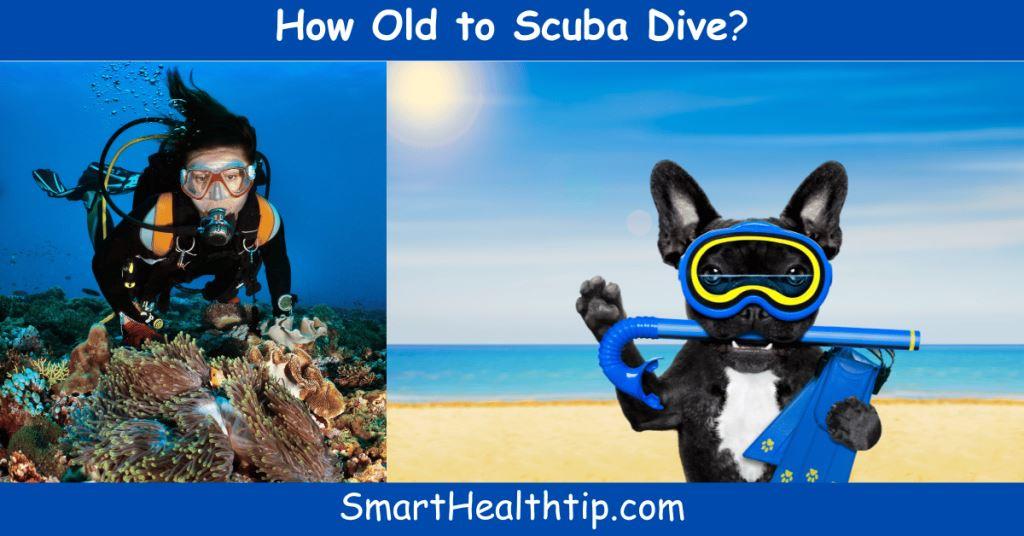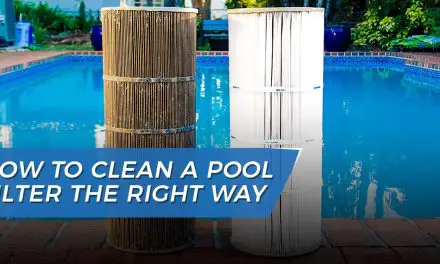The minimum age to scuba dive varies depending on the certification agency but is usually between 10 and 12 years old. Scuba diving age requirements are set by the agencies to ensure the safety and physical development of the young divers.
Scuba diving can be a thrilling and educational experience, allowing individuals to explore the underwater world and witness marine life up close. It is important to follow the age guidelines set by the certification agencies to ensure a safe and enjoyable diving experience for everyone involved.
The Dangers Of Scuba Diving For Young Children
Scuba diving is an exhilarating activity, but it comes with risks, especially for young children. The physical limitations and risks involved should be taken into consideration before allowing them to dive. Their bodies may not have fully developed, increasing the potential for injuries or accidents.
Moreover, psychological factors should not be overlooked; children might not have the maturity or emotional resilience to handle unexpected situations underwater. Besides, there are legal and certification requirements to ensure their safety. Age restrictions and proper training can help prevent mishaps and ensure a safe diving experience.
Ultimately, the well-being of young divers should be the top priority when considering their readiness to scuba dive. So, take the appropriate precautions and guidelines to ensure their safety and enjoyment while exploring the mysteries of the underwater world.
Scuba Diving Age Limits: A Global Perspective
Scuba diving age limits vary worldwide, depending on different certification agencies and countries. These variations can cause confusion for potential divers. While there are no official global standards, certification agencies like PADI and SSI have recommended minimum ages for scuba diving.
In general, children as young as 10 years old can begin their scuba diving journey with special Junior Open Water Diver certifications. However, some countries may have different age restrictions. For example, in the United States, the minimum age for scuba diving is 15, while in Australia, it is 12.
It is important to research and adhere to the specific age restrictions and requirements set by the country and certification agency you plan to dive with.
Factors Influencing The Age Limit For Scuba Diving
Factors such as physical health and fitness play a crucial role in determining the age limit for scuba diving. One needs to be in good physical condition to withstand the physical demands of diving. Additionally, cognitive development and maturity are important factors to consider.
Diving requires the ability to understand and follow instructions, make quick decisions, and be aware of the surroundings. Emotional and psychological readiness is another aspect that needs to be taken into account. Diving can be a thrilling yet challenging experience, so individuals must be mentally prepared to handle any potential stress or anxiety that may arise.
Ultimately, the age at which one can start scuba diving varies depending on these factors, as it is essential to ensure the safety and well-being of the diver.

Credit: techbullion.com
Preparing Children For Scuba Diving: Age-Appropriate Training
Preparing children for scuba diving involves age-appropriate training, distinguishing between children’s courses and adult courses. An essential aspect is the presence of supervision and the use of the buddy system, ensuring safety underwater. It is crucial to consider the developmental stage of the child, providing exercises and skills suitable for their abilities.
By tailoring the training to their level, children can gradually build confidence and competence in scuba diving. Close attention to their physical and mental readiness helps create a positive and enjoyable experience. As parents and instructors, we play a vital role in fostering a safe and nurturing environment for children to explore the wonders of the underwater world while instilling responsible diving habits.
Debunking Common Misconceptions About Scuba Diving Age Limit
Debunking common misconceptions about the age limit for scuba diving, it is important to understand the myth versus reality when it comes to early exposure to water and early diving. Many parents have concerns and fears about allowing their children to participate in diving activities.
However, case studies have shown that young divers can successfully navigate the underwater world. By addressing parental worries and providing proper training and supervision, children as young as 10 years old can safely explore the depths. Understanding that age does not necessarily equate to skill or ability, it is essential to assess each individual’s physical and emotional readiness.
With the right guidance and precautions, young divers can experience the wonders of the underwater world and develop a lifelong passion for scuba diving.
The Benefits Of Diving At Different Ages
Scuba diving offers numerous benefits for divers of all ages. Teenagers and young adults can explore career opportunities and develop valuable skills through diving. Middle-aged divers find stress relief and improve their physical fitness underwater. For seniors, scuba diving provides mental stimulation and a chance for social connection.
Diving at different ages caters to diverse needs and interests. It allows teenagers and young adults to discover their passion and potential career paths while improving their diving skills. Middle-aged individuals can escape the daily grind by immersing themselves in the underwater world, reducing stress levels and boosting their overall physical well-being.
For seniors, diving offers a unique opportunity to engage the mind and stay socially connected. Scuba diving truly offers something for everyone, regardless of age. So, when considering scuba diving, age is just a number, and the benefits are limitless.
Enjoy the adventure and benefits of diving that await you!
Responsible Diving Practices For All Ages
Scuba diving is a thrilling activity accessible to individuals of all ages. Ensuring responsible diving practices requires a commitment to regular health check-ups and fitness maintenance. By preserving our physical well-being, we can fully enjoy the wonders of the underwater world.
Additionally, continued education and skill enhancement help improve our diving abilities and knowledge. This enables us to explore more challenging dive sites and engage in different types of diving. Adhering to safety guidelines and best practices is crucial to mitigate potential risks and protect both ourselves and the marine environment.
By following these principles, we can ensure a safe and enjoyable scuba diving experience, regardless of our age. So, whether you are a teen adventurer or a seasoned senior, scuba diving offers the opportunity for everyone to explore and appreciate the ocean’s captivating beauty.
Frequently Asked Questions For How Old To Scuba Dive
How Old Do You Have To Be To Scuba Dive?
To scuba dive, you typically have to be at least 10 or 12 years old, depending on the certification agency.
What Are The Age Restrictions For Scuba Diving?
Most scuba diving agencies require a minimum age of 10 or 12 for junior certifications and 15 or 18 for full certifications.
Can Kids Go Scuba Diving?
Yes, children as young as 10 or 12 can participate in scuba diving under the supervision of a certified instructor.
Conclusion
Discovering the age requirements for scuba diving is crucial for anyone interested in exploring the underwater world. As we have discussed, the minimum age to scuba dive varies depending on the certification agencies. PADI allows children as young as 10 years old to enroll in their Junior Open Water Diver course, whereas other agencies may have different age restrictions.
It is important to consider physical and cognitive development when determining if someone is ready to scuba dive. Young divers must also be supervised by a certified adult at all times to ensure their safety. Remember, scuba diving can be an incredibly rewarding and exhilarating experience, but it is essential to adhere to the age requirements and safety guidelines set forth by reputable certification agencies.
So, whether you are a parent considering scuba diving for your child or an adult interested in taking up this thrilling hobby, make sure to research the age requirements and choose an agency that prioritizes safety.

















